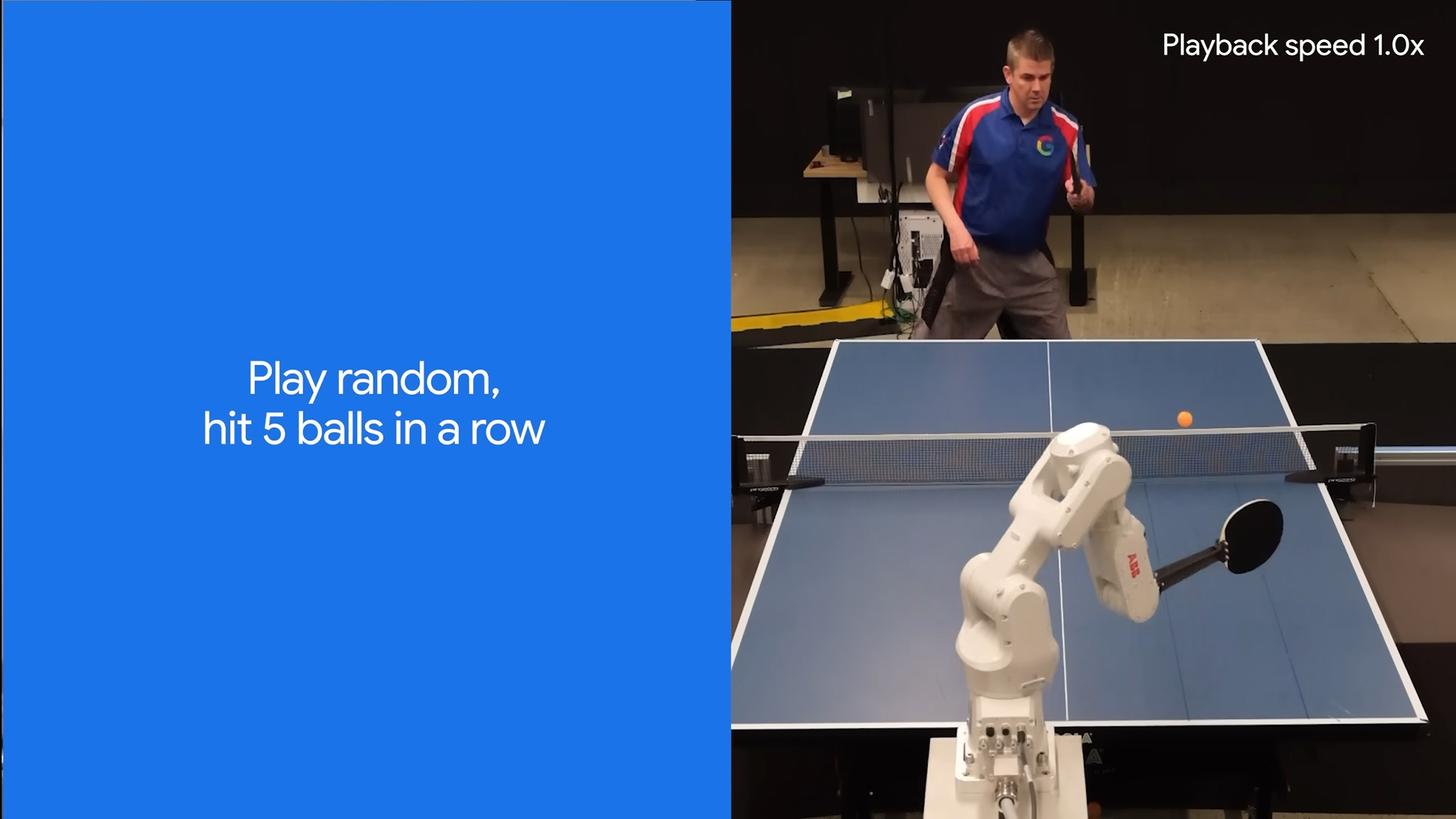Google's DeepMind AI can now play table tennis to a competitive level
The AI Olympics await

Before artificial intelligence takes over the world, it seems it'll beat us at table tennis first: Google has reported on a robot making use of its DeepMind AI that is now able to play ping-pong to an "amateur human level" of performance.
The DeepMind lab is where Google works on some of its most advanced AI tech, and we've previously seen plenty of practical DeepMind experiments: everything from AI adding audio to silent videos, to discovering new materials.
In a new paper, Google's researchers say their table tennis robot was able to win 13 out of 29 matches played against humans, with its success rate varying on the ability of the players it was competing with (from beginner to advanced).
"This is the first robot agent capable of playing a sport with humans at human level and represents a milestone in robot learning and control," write the researchers, though they also say this is only a small step forward in the more general field of getting robots to perform useful, real world skills.
Not so fast
Table tennis was chosen as a project by the DeepMind team because of the many different elements involved, from the complex motion physics to the hand-eye coordination that's required to keep hitting the ball back successfully.
The robot was trained by focusing on each particular type of shot separately, from backhand spin to forehand serve. This training was then combined with a more high-level algorithm designed to choose the necessary type of shot each time.
As you might expect, the robot struggled most with faster shots (giving the AI less time to think about what to do), and the researchers are already thinking about how to improve the system – including how to make it more unpredictable in its play.
Get daily insight, inspiration and deals in your inbox
Sign up for breaking news, reviews, opinion, top tech deals, and more.
There's even the built-in ability to learn from the strategies of the human opponent, and weigh up their strengths and weaknesses. The full paper is well worth a read if you're interested in the challenges of AI training and scaling, and how robots might develop the combination of skills required to be useful in physical tasks.
You might also like

Dave is a freelance tech journalist who has been writing about gadgets, apps and the web for more than two decades. Based out of Stockport, England, on TechRadar you'll find him covering news, features and reviews, particularly for phones, tablets and wearables. Working to ensure our breaking news coverage is the best in the business over weekends, David also has bylines at Gizmodo, T3, PopSci and a few other places besides, as well as being many years editing the likes of PC Explorer and The Hardware Handbook.
